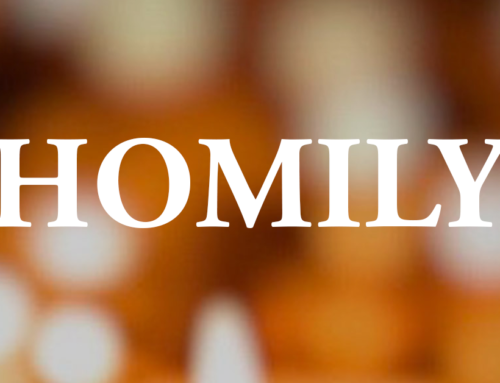“The Trapeze of Trust”
“Increase our faith!” The desperation of the disciples’ cry is understandable, when we consider that this passage comes immediately after a difficult teaching from Jesus about forgiveness. This is the one where Jesus says that if a person sins against you seven times a day and repents seven times a day, then you must forgive … seven times. It’s a tall order. And the disciples’ immediate reaction is to beg for more faith to accomplish it.
In response, Jesus says that all the disciples need is faith the size of a mustard seed. In other words, the disciples already have what they need: that tiny seed of faith.
A horticultural digression: From tiny mustard seeds grow trees that can reach a height of 30 feet. Scholars tell us that those are the types of mustard seeds Jesus was talking about. The kind of tiny mustard seed that we might be more familiar with, in our corner of the world, sprouts into wild mustard plants that can grow to 12 feet. As any Weed Warrior will tell you, wild mustard is a highly invasive plant. It can be whacked, but it keeps coming back. It is resilient.
So, this parable seems to be telling us, from a tiny seed will grow a tall and mighty faith.
Except, for a lot of us, it doesn’t always work that way. Like the disciples, we feel that our faith is inadequate — for whatever reason, our seed is failing to grow into a tall and mighty plant. We doubt: We doubt our ability to live into God’s vision for us. We question our motives and our actions. In times of sorrow and desperation, we question why injustice, violence and oppression occur. From there, it’s all too easy to tumble down a rabbit hole of cynicism and even despair.
What stymies our faith? What stops it growing?
Faith requires trust. It’s interesting to ask ourselves whether we actually trust God. Do you trust God?
To trust is to give up control, and that can be scary. It means accepting that we cannot prevent bad things from happening to us, to our loved ones, to the world. We can and we must strive mightily for compassion and justice and peace. But we cannot always stop what the Psalmist terms the “wicked” and the “wrongdoer.”
Trusting God doesn’t mean a passive acceptance of everything the world throws your way, nor neglecting responsibilities for yourself and others. Trusting God means knowing that you are loved. It means feeling God’s grace and mercy flow through you and all around you, sustaining you and making you One with God.
My favorite description of faith is one I heard many years ago in this very space. Maybe you remember it, too. You know the circus act, the one where two acrobats are high up on separate trapezes. One of the acrobats lets go and turns a few somersaults in the air and then is caught by the other trapeze artist. Apparently, the real work in this act is done not by the acrobat who lets go of the trapeze — but by the one who catches. Faith is letting go and tumbling through the air, and knowing — just knowing — that you’ll be caught.
Jesus provides some additional (non-acrobatic) guidance, in the second half of our Gospel reading, in the parable of the master and slave. This is one of those passages that to our 21st-century ears can sound a bit harsh. Most of us aren’t used to the idea of servants — let alone “worthless slaves” — and it just doesn’t seem right that a person should work so hard and then be expected to wait on another person before satisfying his own needs for food and rest.
What Jesus is telling us here is that God’s call to the life of faith isn’t about obtaining a reward from God. Our relationship with God is not transactional. Our acts can’t persuade God to love us more because God’s love is infinite and freely given. It’s already there. Our faith doesn’t earn us jewels in heavenly crowns. Our faith doesn’t need to impress God or anyone else.
Instead, we are called to respond in faith to what God has given us, and to strive to live into God’s vision for us. It isn’t easy. Responding in faith can be as daunting as tying on an apron and slinging hash at the end of a long day.
So how do we increase our faith? Practice helps. Just as physical exercise strengthens the body, so practicing your faith strengthens your connection to God. Your practice might involve advocacy and action aimed at social justice. It might involve contemplative prayer. The point is to look outside of yourself, towards God and towards your neighbors, and to serve, without expectation of reward.
That feeling that we need more faith is, as the disciples show us, a heartfelt cry for help: for help with building God’s kingdom on earth. That help is there, inside you and all around you, in this community and without these walls.
Breathe deeply. Allow yourself to feel God’s infinite love for you. Feel that transcendent One-ness with God. Then respond with gratitude and love in return. That is faith. Amen.
–Barbara Toman
PDF: Homily for Pentecost 17 (Proper 22C)
Written by Barbara Toman
October 5, 2022


